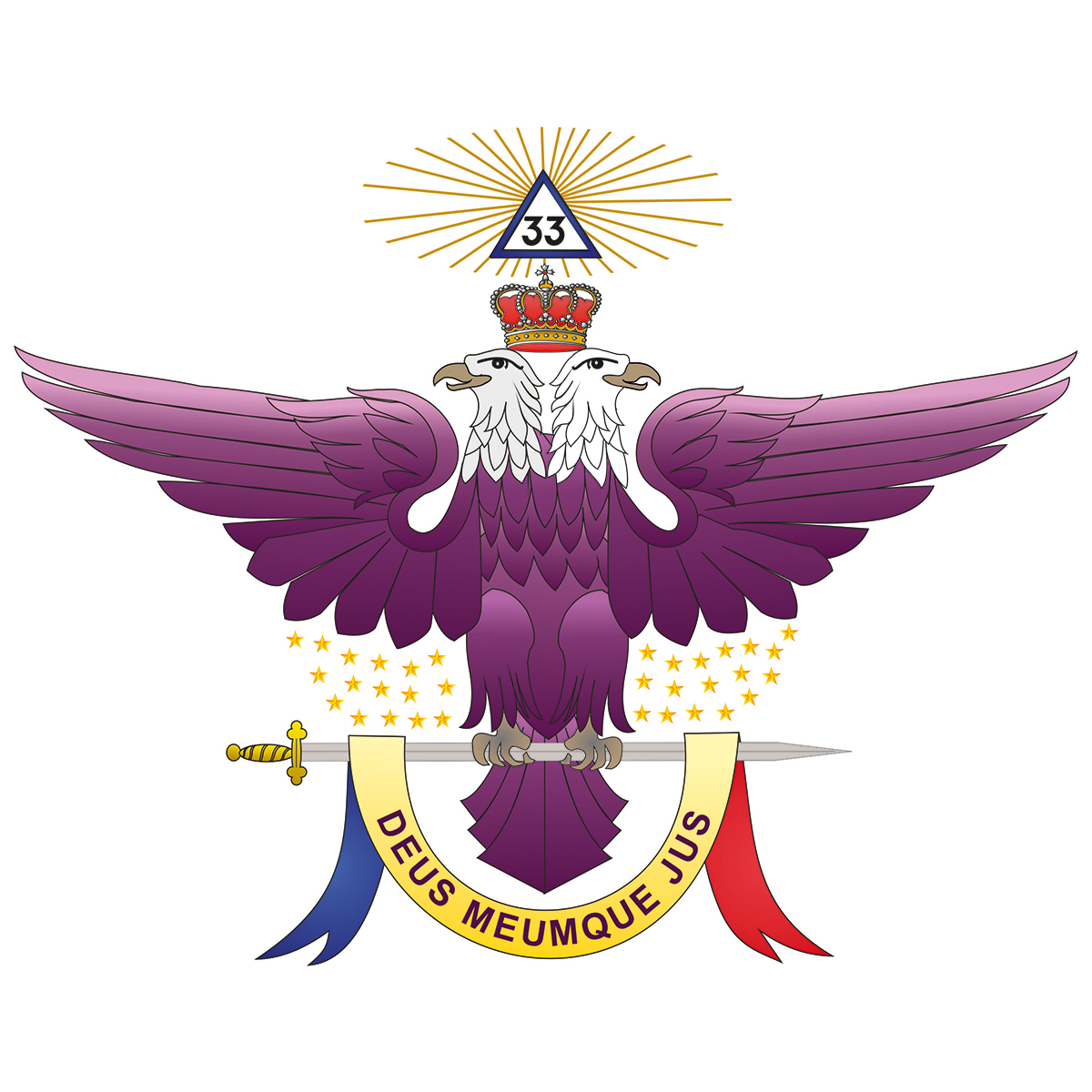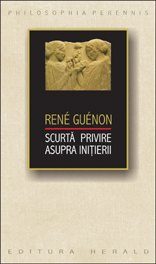René Guénon's name will return more than once in the space of our column: as the name of an authority I have appealed to, and I will appeal, whenever I try to give a "definitive" look, a "no appeal" turn to assumptions / my considerations regarding a book / theme or another… And the quotation marks given to the two attributes do not mean the relativization of this authority; but, starting precisely from the spirit of his writings, he suggests that, from time to time, everything can be - and sometimes must - be called into question; Re-taking from the beginning and re-read: but not as an "innovation", as the product of some individual fantasy, as Guénon himself warns, but in the light of the Great Traditions - whose subtle performer, and tireless propagator, has been for five decades.
If we were to look for / assign a “classic profile” to him, I think the one that suits him best is that of a Ianus bifrons: scrutinizing, with the same lucid / penetrating gaze, East and West… Going up to the sources, it must be said that - in early Latin mythology - Janus and his sister Iana personified the Sun and the Moon: illuminators of day and night, respectively. And that, from another perspective, Janus must be understood as "gate": as opening to realms inaccessible to "ordinary" knowledge (= knowledge undertaken in the absence of initiation).
For those who can read, all this can be found in the - complex and profound - personality of René Guénon: as it transpires from what he wrote… Finally, let's take into account that, born a Catholic, he attended early various (alleged) initiatory structures / organizations - including French Freemasonry of the early twentieth century - to spend the last twenty years of his life in Cairo: where he adopted all Muslim rites and customs, after, in 1911-1912 , had attached himself to Sufism (the “esoteric core” of Islam), receiving the name of Abdul Wahed Yahia (= “John, the servant of the One”)… Above all, however, lies the “fact” (undocumented) that In 1912, Guénon was invested by Superiores Incogniti, with the position of restorer of the Primordial Tradition in the West.
With this, his metaphysical realization was a fulfilled fact; fact perfectly deducible from (and proven by) everything he wrote / published: articles, studies, books - all focused on the idea (and promoted for the purpose) of converting the Western mentality to Tradition and the Sacred.
We understand, therefore, why none of the moderns, like him, has succeeded in deciphering and interpreting the sacred texts: bringing to us the light of the eternal Orient; as no one caught in more powerful, more subtle and more rigorously argued formulations, what he himself called "the degree of degeneration reached by the modern West”.
In our country, during the communist regime, Guénon was known especially through Vasile Lovinescu: contemporary, correspondent and, to a certain extent, emul / disciple of the master… Their relationship, strictly epistolary, dates from the 30s: in 1936-37 , magazine Traditional Studies, led by Guénon, publishes V. Lovinescu, in five issues, the study Hyperborean Dacia (Hyperborean Dacia), signed "Geticus"; because, two or three decades later, books like The fourth hagialac (in 1981) and, in particular, Branch and Golden Branch (in 1989) to attest how fruitful, not only "indebted", can be the systematic attendance and in-depth knowledge of the Guénonian universe of ideas.
Approaches of vast scope, and of unique deepening of the old Romanian spirituality, V. Lovinescu's books have, in their texture, frequent references to these ideas, as well as substantial quotes from Guénon's studies: ideas and quotes that acquainted him, how rather, on the Romanian reader with a vision of the World (and, implicitly, of History) in total contradiction with the official ideology (infested with dogmatism, and which promoted the so-called “dialectical and historical materialism” not as a possible “basis of discussions ”, but as a“ weapon ”to exclude any different point of view - exclusion accompanied, more than once, by heavy criminal convictions).
After 1990, the one that (re) brought Guénon into the Romanian language space was the Humanitas Publishing House - under the auspices of which, in less than four years, three reference works appeared: The crisis of the modern world (1993), The rule of quantity and the signs of the times (1995), Symbols of Sacred Science (1997). The suite of these translations, intelligently arranged in this way, encompasses a specific meaning: what transcends, so to speak, the "immanent" matter of each of them… introduction ”in a universe of ideas as fascinating as it is complex: the first two deal with one of the major coordinates of Guenonian thought, and the other proposes the“ key ”to the correct decipherment of the symbols that make up the ancestrality and substratum of the Indo-European imaginary.
After entering the new century and millennium, the relay was taken over by the Herald Publishing House - specialized in writings of such an invoice; since 2005 and until now, no less than 12 books signed by René Guénon have appeared here - among them, the one presented / recommended, or rather, in our column… Impressive in size and rhythm, this editorial approach (which does not stops here, other appearances being announced) shows "thinking" and "program" - completely worthy of man and the work of the unnamed, by some contemporaries, the prince of arcana.
You will ask me, and rightly so, why - of all things - I chose this one (published in 2008 and translated, impeccably, by Roxana Cristian and the late Florin Mihăescu)… It's true, I could have chosen any other; for, as in a point situated in space an infinity of lines can intersect, each able to (lead) to the Center, so René Guénon's books complement and illuminate each other: calling each other and sending , any of them, to the "hidden core" of his thinking.
I chose this one, though, because the problem of initiation is becoming more acute today than ever… Proliferation - and in Romania, as everywhere in the world - of all sorts of societies and “confraternities” that are more “mystical”, more “esoteric”, as well as, quasi-generalized, confusion between “initiation” and “mysticism”, it demands (as a matter of urgency, I would say) the separation of land waters: by defining, objectively and rigorously, initiation; as well as through its strict delimitation - not only of "mysticism", but also of its own counterfeit "forms".
Such a rehabilitation, to bring to light the concept, undertakes - with its well-known spirit of finesse, but also with relentless irony - René Guénon. Everything, subscribed to a vast cultural horizon: which, either directly or by suggestion, gives the impression that the author is exhausting the data of the problem.



